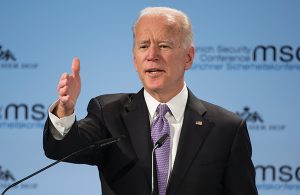Bloomberg
Venezuela’s government released two political prisoners, days after it held a rare meeting with members of the administration of US President Joe Biden to discuss lifting oil sanctions. President Nicolas Maduro released Gustavo Cardenas, a US citizen and former executive from oil firm Citgo, according to his lawyer Diego Barboza. Cuban-American citizen Jorge Fernandez, arrested in February 2021, was also freed, his lawyers said.
The decision followed a surprise visit from US officials in which they discussed a potential waiver of some sanctions. If enacted, that would allow Venezuela to boost its oil trade and give the Biden administration a win in its attempt to pry away allies from Russia following the invasion of Ukraine.
Biden confirmed the releases in a statement late Tuesday evening, saying the administration will continue to fight for the return of other prisoners being held in Venezuela and other countries. He thanked Special Presidential Envoy for Hostage Affairs Roger Carstens, who, according to people familiar with the matter, also attended the talks in Caracas.
“Tonight—two Americans who were wrongfully detained in Venezuela will be able to hug their families once more,†Biden said in the statement released by the White House.
On Monday, Maduro called the weekend talks cordial and productive. “We agreed on issues of interest for an agenda moving forward,†he said.
Cardenas was arrested in 2017 and charged with corruption, along with five other executives from Venezuela’s U.S.-based refining complex, Citgo. Fernandez was charged with terrorism after being caught at the Colombia border carrying a fake ID and a drone.
Even after the release of the men, roughly 240 other political prisoners are being held in the country, according to a Caracas-based human rights organization, Foro Penal.
Venezuela has been under economic and oil sanctions since 2019, after the US and dozens of other countries recognized opposition leader Juan Guaido as Venezuela’s legitimate president. The country, ruled by Maduro since 2013, was already battling a deep recession and hyperinflation, while experiencing one of the hemisphere’s worst migration crises in recent history.
Seeking to survive the crippling cash crunch derived from sanctions, Maduro turned his socialist rule into a more capitalist economy, allowing US dollars to circulate freely, waiving taxes on a wide range of imports, and easing restrictions on the private sector.
But the sanctions continued to hurt the country’s decimated oil production, which at around 800,000 barrels a day is down from around 3 million in 2001. A sanctions waiver may allow Venezuela to normalize exports and buy parts necessary to boost production and fill the gap left by Russian oil.
 The Gulf Time Newspaper One of the finest business newspapers in the UAE brought to you by our professional writers and editors.
The Gulf Time Newspaper One of the finest business newspapers in the UAE brought to you by our professional writers and editors.
